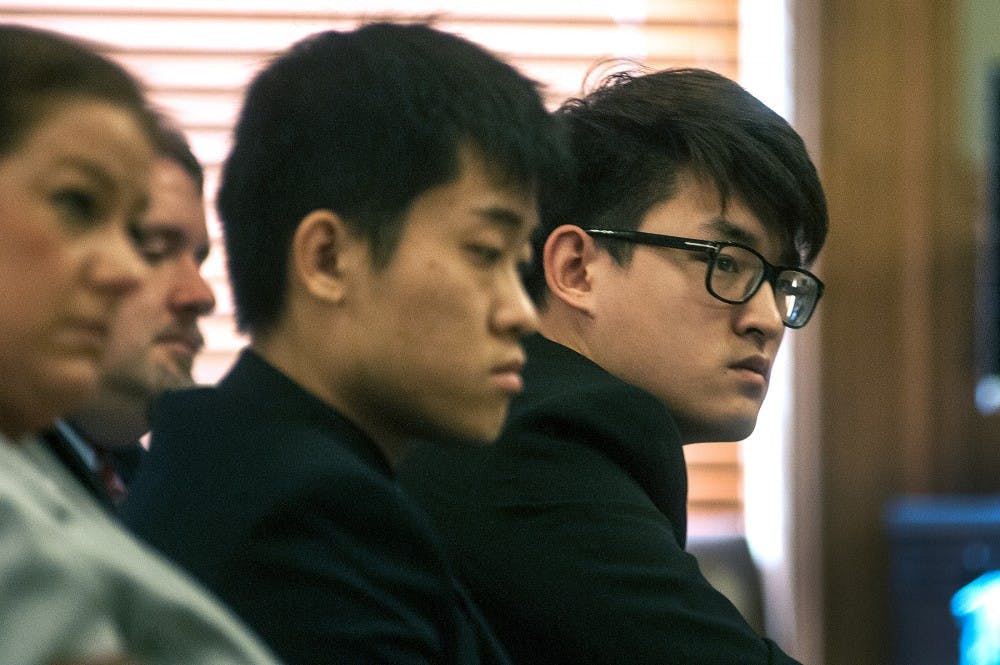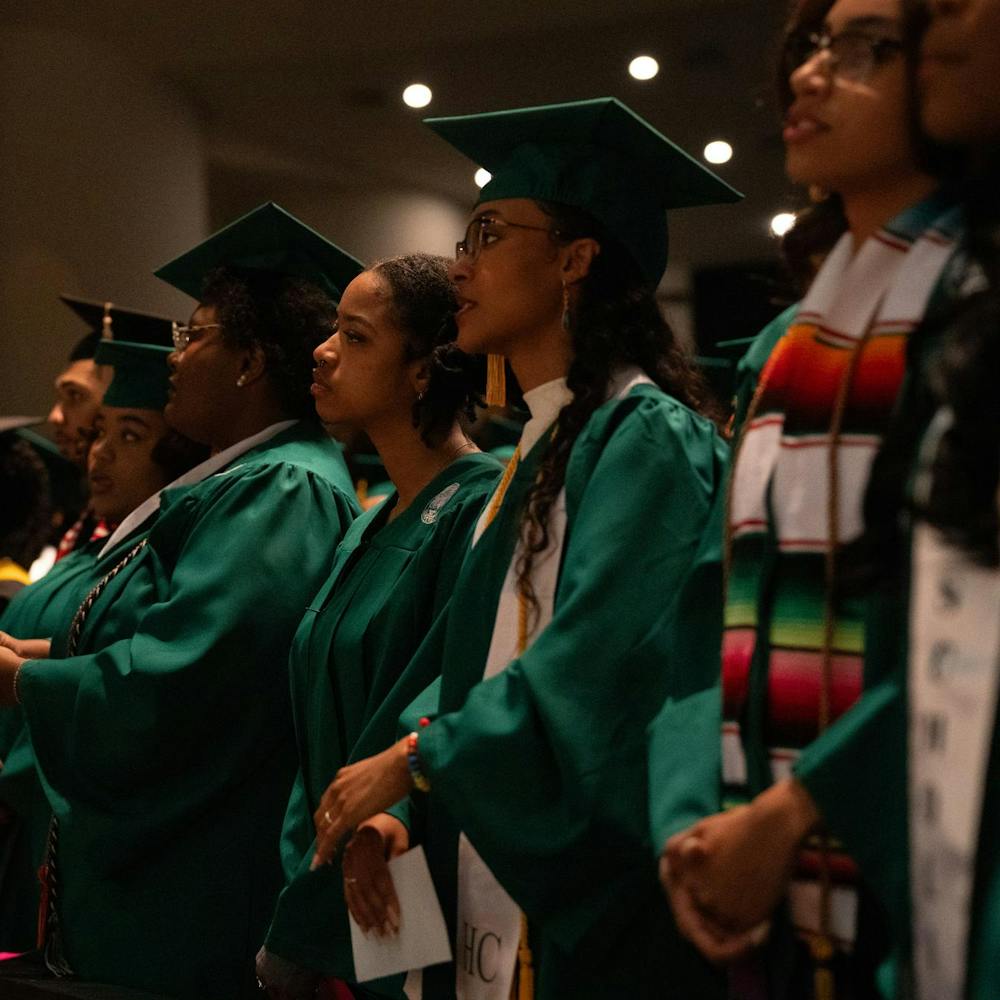Allegations of a Chinese student gang on campus appear to be exaggerated, according to MSU Chinese students who know members of the group.
The allegations were made by the prosecutor in the trial of two MSU Chinese students accused of beating a third Chinese student at a Meridian Township karaoke bar Jan. 31, 2014, the night of the Chinese New Year. Though the jury acquitted student and defendant Shan Gao of all charges, they were unable to reach a verdict on the other defendant, alumnus Meng Long Li, who now faces a retrial.
During the trial, Ingham County Assistant Prosecutor Kimberly Hesse claimed that the assault was connected with a group of Chinese students who call themselves “Chengguan,” in which Li was alleged to be an enforcer and Gao a lower-level middle man.
The name is the same as that of a municipal parapolice force in China that is notorious for extorting migrant vendors and using excessive force on them in enforcing city regulations, Wayne State University sociology professor Sarah Swider said.
Along with appropriating the parapolice force’s name, members of group on campus, including Gao, had stickered the agency’s badge-like logo to their cars. Hesse claimed the appropriation aligns with her earlier allegations that the group’s mission is to use fear, intimidation and physical violence to gain notoriety on campus.
“Meng Long Li and Shan Gao and all of their friends wanted everyone to know that they are the top dog,” Hesse said in her closing argument. “They drive around in their fancy cars with the Chengguan stickers in the windows, alerting everyone that they run the Chinese scene on campus.”
Gang perceptions
But many Chinese students on campus had never heard of Chengguan until the trial.
And, even after learning about them through reports and second-hand knowledge, some laughed off the notion of an alleged Chinese student gang, and most thought it was nothing more than a friend group that occasionally gets into fights, much like domestic students do.
Hesse’s claims — that the group intimidates or fights other Chinese students to assert their dominance — have been refuted by those who know them, for better and for worse.
John Xu, a Chinese student who declined to use his real name, said members of the group fight not for status but to resolve personal conflicts.
“If you don’t mess with them, they won’t hurt you,” Xu said. “Only if you offend them, they will hurt you. If you have conflict, they will hurt you. But if you have no relationship with them, they won’t hurt a stranger.”
“They don’t look for fights, but they don’t fear (fights),” he said.
Chengguan on campus, which is made up of nearly 10 students, Xu said, is more of a fraternity than a gang. They live together, play sports together, party together and sometimes fight together, he said.
Craig Yang, who also declined to use his real name, is a Chinese student and friend of some members in Chengguan. Yang said the group is comprised of nearly six to eight people and that it was formed by a now-alumnus on the grounds that “maybe we should play together.”
“They’re just friends,” Yang said. “(They) play together, see movies, drink. If somebody needs help, or (has an) argument with another, they will help him. They’re not real gangsters.”
Yang didn’t dispute that the group sometimes fights others, but he said claims that they do so to intimidate other Chinese students is false.
As for the Chengguan stickers on the group’s cars, Yang said it’s just “good play” and purposed for “looking cool.”
Their use of the Chengguan name and logo, Xu said, is a way of building group identity and looking cool, rather than a tool of intimidation.
“It’s like some people put NYPD (logos) on their car,” he said. “Some of my friends put an (Iron Man) shield on their car. I think (Chengguan members) just think it’s awesome, and all of the group can have this logo on their car. They just try to look cool.
“Chengguan in China is not related with this.”
A clouded intent
Though the reasons for appropriating the parapolice force’s name and badge-like logo seem innocent, Swider said the students know full well the impression such a name gives to other Chinese students.
“I think these students are very smart, and they’re educated and they know exactly what the implications are of using this name,” she said. “I think they’re very aware that Chengguan (in China) is abusive, that they’re above the law.”
Supply chain management senior Ryan Pun hadn’t heard of the group before the trial but said he’s certain that if the gang allegations were true he would have known about them.
“After the trial, I heard from my friends that it’s just a bunch of friends in the group,” Pun said. “But the trial was talking about how that group is like a gang — no, that cannot be the case, if that’s the case, I should know that before the trial.”
Nearly two years ago, Xu fought with members of Chengguan after stepping into a fight that involved a friend of his.
The nature of that fight mirrors how many of the scraps involving members of the friend group break out, he said — a personal dispute between two people escalates and a punch is thrown — while they’re usually broken up at that point, some not stopped will begin involving friends on both sides.
Xu estimated that over the past several years, the group had been involved in five fights that ended in injury, many of which evolved out of small scuffles over personal disputes that had taken place earlier.
“Most of them are harmless, not good, but harmless,” he said. “But sometimes they try to fight for their friends.”







